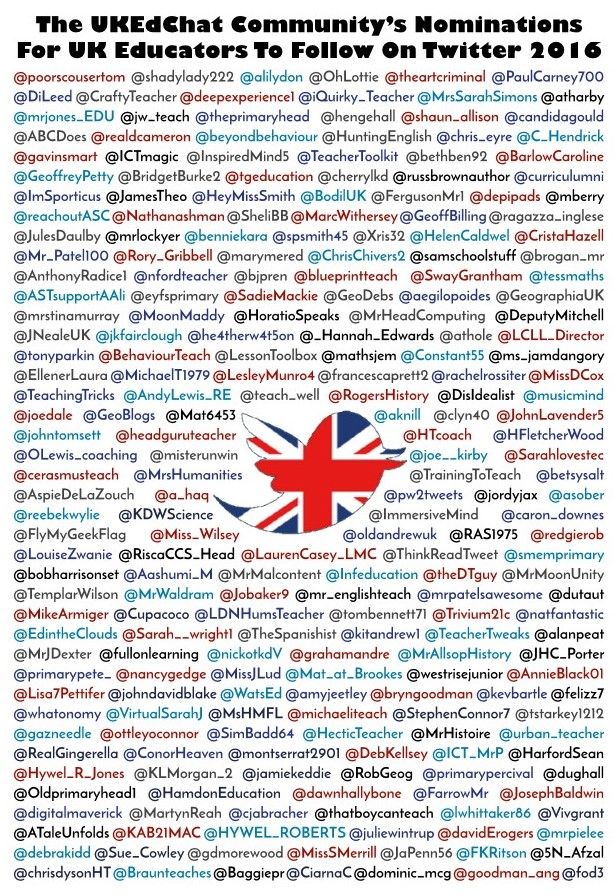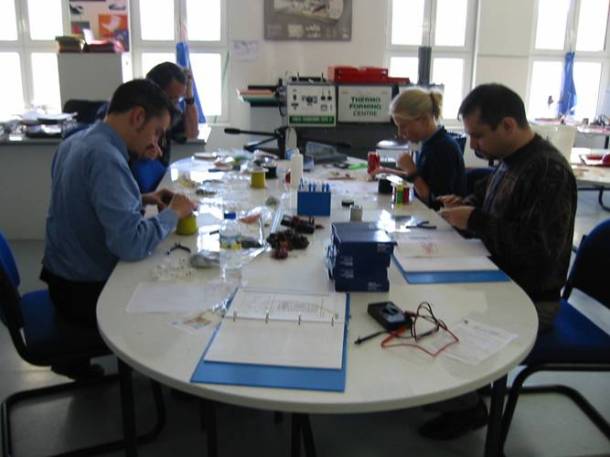
For the past four years I have been a fan of twitter (@tiddtalk). It has enabled me to network very freely with other like minded teachers and educators around the world. This can enable you to spread information very quickly on what is happening now or a particular moment. It is an excellent resource to spread information especially if you have updated your blog and are looking for instant readership. It is a great use of technology and is something I have found to be a great source of learning and enjoyment.
Recently at my school, twitter and blogging has taken off with a recent twilight on the subject. This is fantastic news for my fellow teachers for their CPD and for our students. But we have to be very careful with what we write and who we share this information with. As long as we are professional and think before we tweet we should not fear this medium of sharing information and knowledge. Twitter is here to stay and is the future of learning. Using technology in the right way can only improve our lessons and sharing of ideas.
We have created @GillGeographers for our students to follow in geography. This will be a dedicated twitter address for geographical events that are taking part in the world, to improve case study knowledge, world issues and information regarding the geography department.

With @GillGeographers and for my school I have come up with a few twitter rules:
• Keep your ‘school/education/department’ account to be used for school separate from your personal one. I do not let any student follow @tiddtalk, I check my followers daily and block any students who have found me as it is my private account.
• What do you want to do with this account? What do you hope to accomplish? What do you want to communicate? Your ‘school/education/department’ twitter account could be used as a broadcast account to start off with sharing news links and information. This is perhaps the “safer” option initially as you get used to using twitter and what you want to do with it.
• The account will need to be looked after and kept up to date as social networking is an immediate thing which can demand an immediate response. Will there be just one person who will post or will you have multiple people who post? Remember to keep it simple to start with.
• Who do you want to follow? I think it would be unwise to follow students as it would be possible to direct message (private message) them. The @GillGeographers account will not be following anyone as there is no need to.
• How will you respond to questions directed at you? Do you need to send a message to a student via twitter? I think twitter is appropriate for students to send a message to your school account if it is a task related assignment i.e. find a news story on the Arctic and they send you the link for example.
• Never give out personal information such as your address/phone number/personal things – remember this is your school/education account!
• Don’t say anything on twitter that you wouldn’t say face-to-face. Remember it is a public space – it’s not the same as sending an email or a text message to one recipient. Once sent, tweets can be seen by anyone and if retweeted, can quickly take on a life of their own even if you delete it!
• Choose a strong password (a mixture of numbers and letters which would be hard for anyone else to guess) and do not share it.
• Turn off the ‘add location to tweet’ feature – to do this, click on the ‘settings’ option from the drop down menu to the right of the search box and untick the box (if it is ticked) next to the ‘add a location to my tweets’ option and then click on ‘save changes’.
• Think carefully about the details you put in the ‘bio’ section and any photo’s you use.If you have a personal twitter account I would advise you to not follow the ‘school/education/department’ one as students will only look at your account and follow you & potential other teachers who you follow in your followers list. This only creates work for you blocking them! @tiddtalk is open to the world to view so students no doubt have looked at it but it is not for them to follow (@GillGeographers is for them!) I think very carefully what I put up there as anyone can read it.
• And probably the most important rule, think before you tweet!

I have tried to keep these rules simple and so teachers do not get into trouble using twitter.
Additionally to this, Jim Docherty, assistant secretary of the SSTA, told BBC Scotland that teachers should follow this advice: “First thing is don’t bother telling anybody else about your social life. Nobody is interested about your social life and it doesn’t help.”
“Secondly, never make any comment about your work, about your employer, about teaching issues in general. There is always a possibility it will be misinterpreted.”
Contact me via @tiddtalk to let us know how you are getting on with twitter and it’s use in your classroom. Remember, think before you tweet!

























